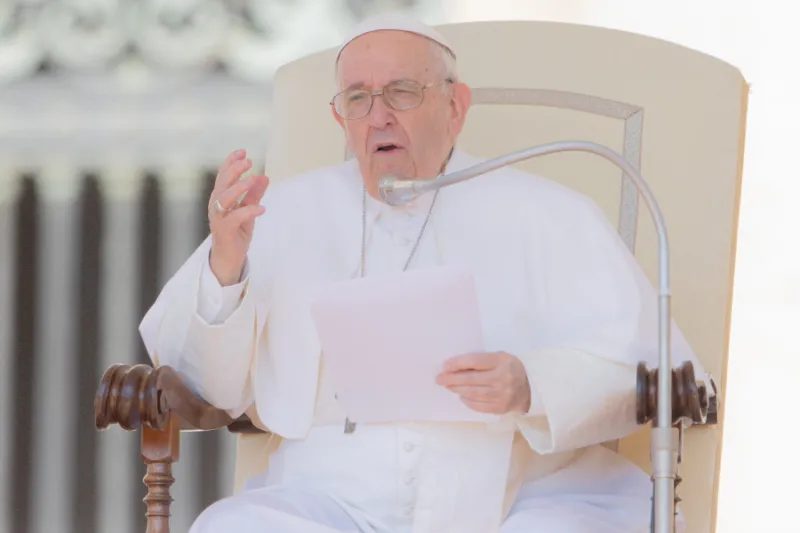
Vatican City, Jun 15, 2022 / 06:50 am (CNA).
Pope Francis on Wednesday decreed that diocesan bishops must receive written permission from the Vatican before erecting a public association of the faithful that is later expected to become a religious institute.
The pope’s rescript, issued on June 15, states that the diocesan bishop must receive a “written license” from the Dicastery for Institutes of Consecrated Life and Societies of Apostolic Life before erecting, by decree, “a public association of the faithful with a view to becoming an institute of consecrated life or a society of apostolic life of diocesan right.”
The decision, approved on Feb. 7, goes into effect immediately.
The Code of Canon Law describes associations of the Christian faithful, which can be either public or private, as groups striving “in a common endeavor to foster a more perfect life, to promote public worship or Christian doctrine, or to exercise other works of the apostolate such as initiatives of evangelization, works of piety or charity, and those which animate the temporal order with a Christian spirit.”
It explains that “associations of the Christian faithful which are erected by competent ecclesiastical authority are called public associations.”
The new rule follows a change Pope Francis made to canon law in 2020, which required a bishop to have permission from the Holy See prior to establishing a new religious institute in his diocese.
The pope modified canon 579 of the Code of Canon Law, which concerns the erection of religious orders and congregations, referred to in Church law as institutes of consecrated life and societies of apostolic life.
The law was changed from requiring the diocesan bishop to consult with the Vatican before giving canonical recognition to a new institute to requiring him to have written permission.
This change further strengthened Vatican oversight over the process.
If you value the news and views Catholic World Report provides, please consider donating to support our efforts. Your contribution will help us continue to make CWR available to all readers worldwide for free, without a subscription. Thank you for your generosity!
Click here for more information on donating to CWR. Click here to sign up for our newsletter.




How about the Vatican require associations of ‘Catholic’ synodal participants to obtain written permission prior to printing or speaking immoral modern inanity?
Francis’ 3-year-old letter to German synod participants (which Francis says took him a month to write) is a weak weapon compared to the grave, persistent, obstinate, publicly manifest and forceful and repetitious heretical errors put out by the German synod. Their errors oppose Catholic faith and morals. The pope should excise the errors and excommunicate the perpetrators.
But the new licensing rules probably aim against any Ecclesia Dei-like associations–lest those serious sinners all fail to follow the numerous nebulosities, sensuous spirits, or Delphic interpreters associated with VCII. How dare they rear their ugly heads against false teachings and corrupt persons in the church of pharisaical hypocrites governed by One Francis!
The Pope who wants to decentralize the papacy of tradition and moral law yet still wants to control seminaries and lay associations lest they challenge a ‘synodal way’ of his imagination.
The key element is “control”. Centralized “control” over the Bishops’ authority as descendants of the Apostles. Mickey-Mouse “control” by bureaucracy.
Franciscan “collegiality”
It is a good move. To set up such institutions it makes sense for the diocese to get written license from a body set up for this purpose, the Dicastery for Institutes of Consecrated Life and Societies of Apostolic Life.